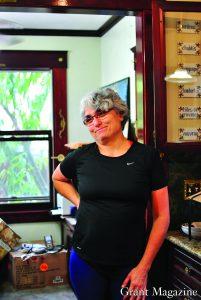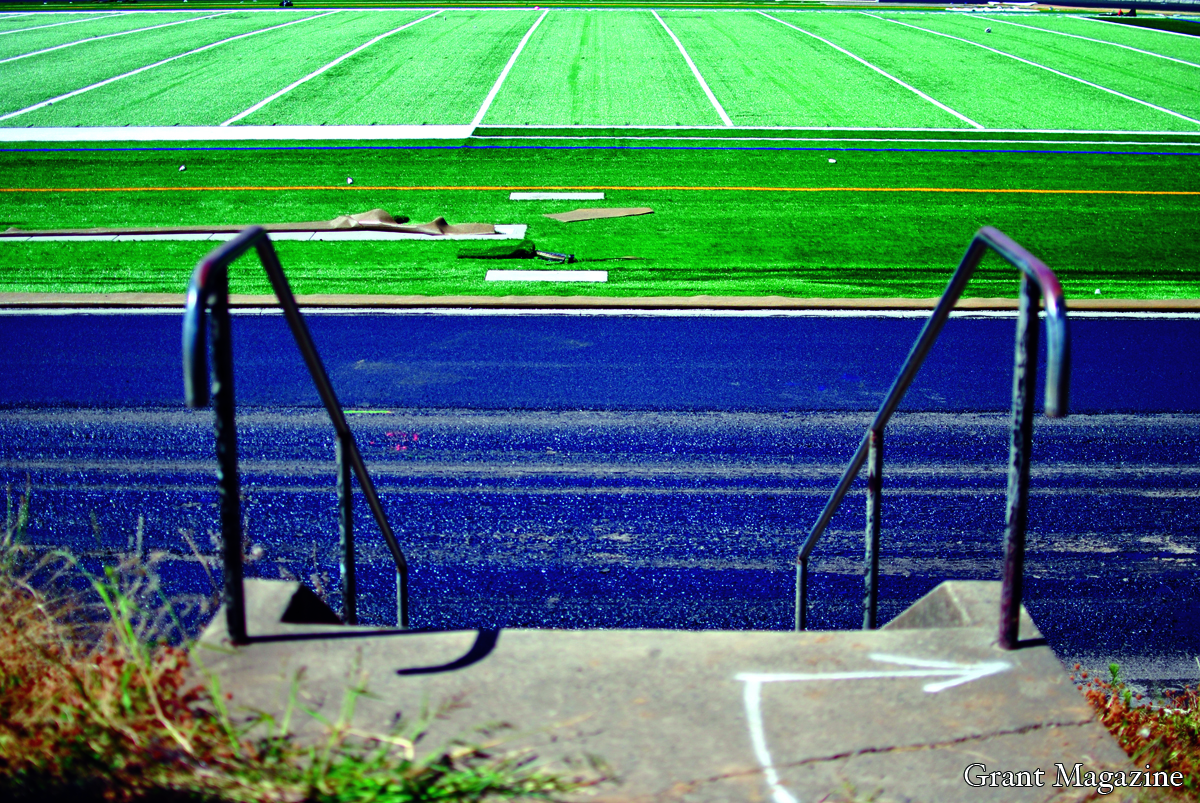
It’s 1979 and a 15-year-old Pardis Navi sits in the Southwest Portland house she shares with her two brothers, worried about the safety of her family in Iran. Seven months prior, she had left their home and parents to come to the United States and escape the impending violence. They hadn’t heard from their mother or father for days on end.
“It was very scary because during the bulk of the uprising, I was here and there was a complete lack of information from my parents sometimes,” Navi recalls. “I wasn’t sure if they were safe, if they were getting supplies. The information coming in and out of the country was very difficult.”
She had managed to leave her home country before the revolution to overthrow the U.S. appointed Shah Mohammad Reza Pahlavi began.
Hoping to keep his daughter safe, Navi’s father, Faramarz, arranged for her to leave in 1978 and stay with her brother, Firouz, who was 20 at the time. She moved into a small home in Southwest Portland. Two months later, Navi’s then-16-year-old brother, Farzad arrived.
“At that time, when I was growing up, it was a very safe, warm environment.” – Pardis Navi
Navi, now 51, grew up with a father who was very family oriented and stressed the importance of education. Though she was raised with education as a top priority, it was against her father’s wishes that she became a teacher. He believed that teachers in Iran were not “compensated enough for the service they provided.”
She had developed a love of math as a child and by the time she reached Portland State University, she had her sights set on becoming a teacher in the United States. She has been a teacher at Grant for 20 years and is known by her students as fun, but challenging.
Navi was born in 1962 in Tehran, Iran and lived with her parents and four siblings. Growing up in Iran, Navi developed a very tight relationship with her father, who shared a passion for reading Iranian authors and poets, and together loved discussing the pieces of literature.
“I could not have asked for a better childhood. Always a lot of family around, a lot of celebrations,” Navi says. “At that time, when I was growing up, it was a very safe, warm environment.” She recalls the long, beautiful, warm summers in Iran as the favorite part of her childhood.
Navi’s father emphasized the importance of family, reading, and education. “My father was very family oriented, he took care of us,” says Navi. Although she grew up to become a teacher, her father did not wish the career for his children. “While some small part of the society honored the profession, he was appalled by the general disregard and disrespect displayed to the teachers,” Navi says of her father’s opinion about teachers in Iran.
Navi’s father was a role model not only to his daughter, but also to her entire hometown. When he moved to Tehran, he had an abundance of books. He was so passionate about reading and learning that he took all of the books he owned and started a library for the town. Navi describes her father as the “unofficial mayor” of Tehran. His door was always open and welcoming to everyone.
After a coup in 1953 that overthrew the democratically elected leader Mohammad Mossadegh, Shah Pahlavi – backed by the United States – was put into power. After more than two decades of oppressive ruling by the Shah, rumors of a revolution began spreading. Previous protests had already erupted.
In order to avoid their young daughter’s involvement in the protests, Navi’s mother and father sent her to live with her brother in Portland. The parents had purchased a house in Southwest Portland home for her older siblings, who were studying at the University of Portland.
Half a world away from home, Navi struggled with culture shock and being away from her parents. “It was the first time I was away from my culture,” Navi says.
When she stepped off the plane in the U.S., the task ahead was daunting. “I went from being a 15-year-old kid to basically having to do everything and figure out everything on my own,” Navi says.
With Farsi as her first language, Navi was placed in the English Language Learners program at Lincoln High School. But the educational atmosphere at Lincoln wasn’t working for Navi. “All the ELL students were placed in one classroom. It didn’t feel like we were being taught, it felt like we were being housed,” she says.
Because the house was on the boundary of Lincoln and Tigard High School, Navi decided to transfer. At Tigard, she felt much more accepted.
A translator was hired to help the students in the ELL program learn English. Navi describes herself as “the quiet girl in the back who never raised her hand.” She says many ELL kids, including herself, didn’t talk because they were afraid to make a mistake. “People learning English can know the subject but the language barrier causes them difficulty,” she says. “They’re afraid that they’ll mess up.”
Navi struggled to maintain a connection with her family in Iran. The only forms of communication at the time were phone calls and handwritten letters. However, during the revolution, phone calls were rare and letters scarcely made it to their intended recipients in a timely manner. The slow communication worried Navi because she never knew if her family was safe from the violence.
“I went from being a 15-year-old kid to basically having to do everything and figure out everything on my own.” – Pardis Navi
Navi has always had a passion for math. By the time she was at Portland State University, she knew she wanted a career that worked with math and teaching. Navi has been a teacher at Grant for the last 20 years. Prior to Grant she taught at Marshall High School and she started her teaching career at Jefferson in 1985.
In 2001, Navi lost her father to a six-month battle with lung cancer. Her son, Darius Lovatt, was a first grader at the time and her daughter, Lillie Lovatt, then five, was too young to travel to Iran with their mother. In Islamic culture, the burial of a deceased loved one must occur within 24 hours. Navi was not able to attend her father’s funeral, but arrived days later to be with her family. “It was devastating…I don’t care how old you are, how old your dad is, it’s devastating,” Navi says now.
Darius had travelled to Iran once when he was just a baby, but for the most part, Navi’s children have never experienced Iran firsthand.
When her children attended Irvington, Navi sponsored a walking trip to the nearby Title Wave Used Bookstore where each child got to pick out one free book. “That’s how I honored my dad’s memory,” Navi says. Navi’s father passed down a love of reading to his children and Navi has done the same to hers.
Today, Lillie is a senior at Grant and Darius will be a sophomore at Portland State University. Navi teaches Algebra 3-4, PSU Probability and Statistics, and an algebra support class. “I see the growth. I love seeing the growth of students from the fall of their freshman year until they become a senior,” Navi says.
Her goal with every student that she encounters is to look out for their futures and prepare them for math at the next level.
“Ms. Navi is a one of a kind teacher that you can’t find very often who really knows how to make learning fun while keeping class time organized,” senior Hailey Nicholas says. “She really brings in her own unique way of teaching.”
Navi’s colleague and friend of 17 years, Susan Shea, says: “I find Ms. Navi to have a no-nonsense style of teaching… with a sense of humor and compassion. She challenges her students to be responsible for themselves, while reaching out to help them when they have questions.”
Navi recalls moments in her teaching career that make it all worthwhile. “Individual students, amazing teachers I have met,” she says. “Above all the honor and privilege to work with and learn from two incredible and smart women: former math teacher Renee Anderson and former principal Toni Hunter.”
Navi admits that she still struggles with the culture and language. However, she continues to establish the same family values in her children that her father established in her. “My father always thought about our futures in the moment and I think I do the same with my kids,” she says.
With the new school year, Navi has a lot on her plate: her own growing children, a new crop of high school students and a new house to settle into. Despite all her responsibilities, she continues to keep a close relationship with her children.
“I guess I’d describe our relationship as being flexible but tight,” Lillie Lovatt says. “She’s not just the kind of mom that gives allowances and assigns chores and cares about A’s, A’s, A’s. She’s more invested in me as a person than her daughter under her authority. We’re equals.”
In the coming years, Navi wants to spend a lot of time with her friends and family, as well as travel the world. And when her retirement comes along, she jokingly says she hopes to end her career without “noticeably damaging a freshman.” ♦































